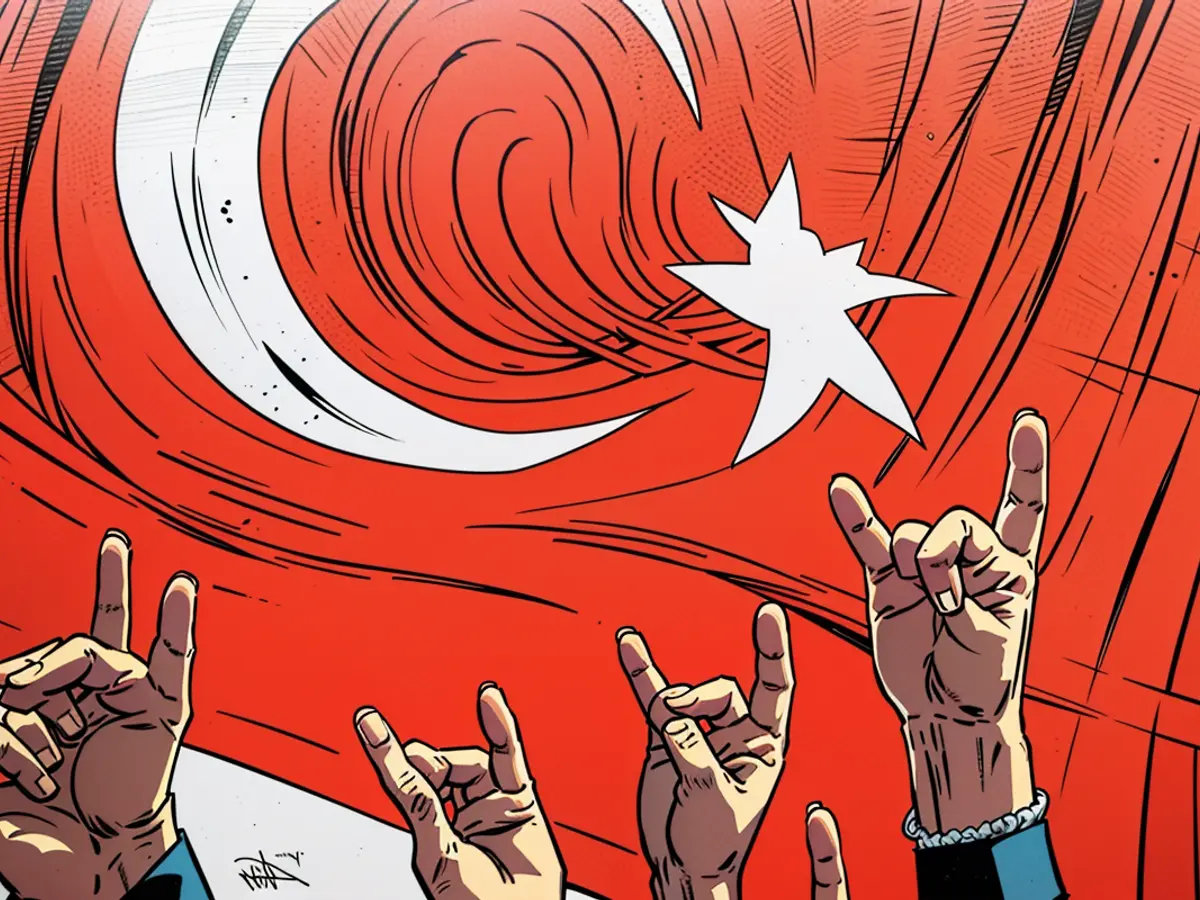Extremism - Growth of Turkish Right-wing Extremists in Hamburg
In Hamburg, the number of followers of foreign extremist associations, according to the Constitutional Protection Agency, slightly increased last year - and this was due to an increase in right-wing Turkish streams. At the end of last year, 115 people were counted in this circle in the Hanseatic City, as the spokesperson of the State Office for the Protection of the Constitution, Marco Haase, told the German Press Agency. "The sympathizer base, however, was still significantly larger with several hundred people."
In Germany, the German representation of the nationalist-right-wing MHP, which is ruled by the AKP in Turkey under President Recep Tayyip Erdogan, is the Federation of Turkish Democratic Idealist Associations in Germany (ADÜTDF), which is represented in Hamburg through the Turkish Cultural Center Hamburg. Their followers referred to themselves as "Ülkücü" - in English "Idealists" - or "Bozkurt" - "Gray Wolves".
"The terms 'Ülkücü' and 'Bozkurt' ultimately always refer to the same circle of Turkish nationalists," said Haase. Their ideology is influenced by the idea of the ethnic and cultural bond of all Turkic peoples and the resulting territorial claims - Turanism or Panturkism. They also stood for a Turkish interpretation of Sunni Islam and a pronounced Kurdish hostility.
Extreme right-wing movements mobilize for "European Turkism"
"The followers of the Ülkücü movement have carried political and historically rooted conflicts from Turkey into Germany since then and have developed into an increasingly international-acting movement in recent years," said Haase. The more internal political, economic, and social conflicts in Turkey intensified, the clearer they became within the Turkish-descended community in Germany. "Through the confrontation with national issues in Turkey, extreme right-wing movements gain a new impetus and mobilize here as well for a 'European Turkism'."
They kept their activities here mostly hidden. Primarily, it concerned internal events such as lectures or concerts. "The ADÜTDF strives to present itself as a kind of 'family association'. With cultural events and festivals, the so-called 'Turkish identity' should be lived out and made accessible to all, creating a 'we feeling' and maintaining a distance from German society," said Haase.
Serious demeanor: Members are supposed to abide by local laws
The responsible persons attach great importance to a serious external appearance. "The members are instructed to abide by the existing laws of their countries and not to provoke their political opponent - above all the PKK -," he said. Bonds and cooperations of the Ülkücü movement also exist with AKP-affiliated representatives of the Union of International Democrats (UID), the Mosque Communities of the DITIB, and the Islamic Community Milli Görüs, but all of them are not observation objects of the Hamburg Constitutional Protection Agency.
- The increase in followers of foreign extremist associations in Hamburg, as reported by the German Press Agency, was predominantly due to an increase in right-wing Turkish streams.
- The Federation of Turkish Democratic Idealist Associations in Germany (ADÜTDF), representing the nationalist-right-wing MHP in Turkey under President Recep Tayyip Erdogan, has a presence in Hamburg through the Turkish Cultural Center Hamburg.
- According to the State Office for the Protection of the Constitution in Hamburg, the terms 'Ülkücü' and 'Bozkurt' refer to the same circle of Turkish nationalists, whose ideology is influenced by Turanism or Panturkism.
- In recent years, the followers of the Ülkücü movement have become increasingly international-acting, carrying political and historically rooted conflicts from Turkey into Germany.
- Extreme right-wing movements in Germany are gaining new impetus by mobilizing for "European Turkism," especially as internal conflicts in Turkey intensify.
- The ADÜTDF presents itself as a "family association" in Germany, hosting cultural events to promote a "Turkish identity" and maintain a distance from German society.
- The Ülkücü movement emphasizes a serious external appearance, instructing members to abide by local laws and avoid provoking political opponents, such as the PKK.








